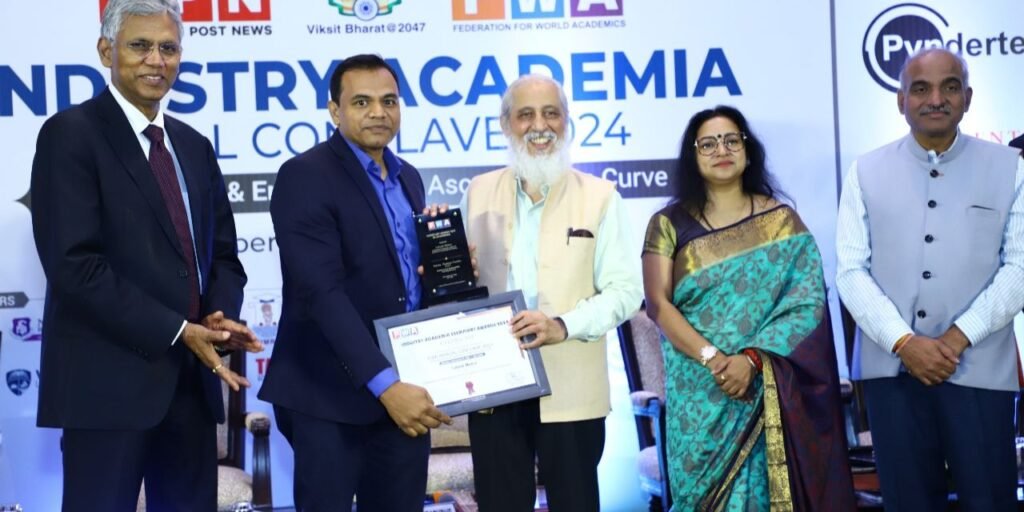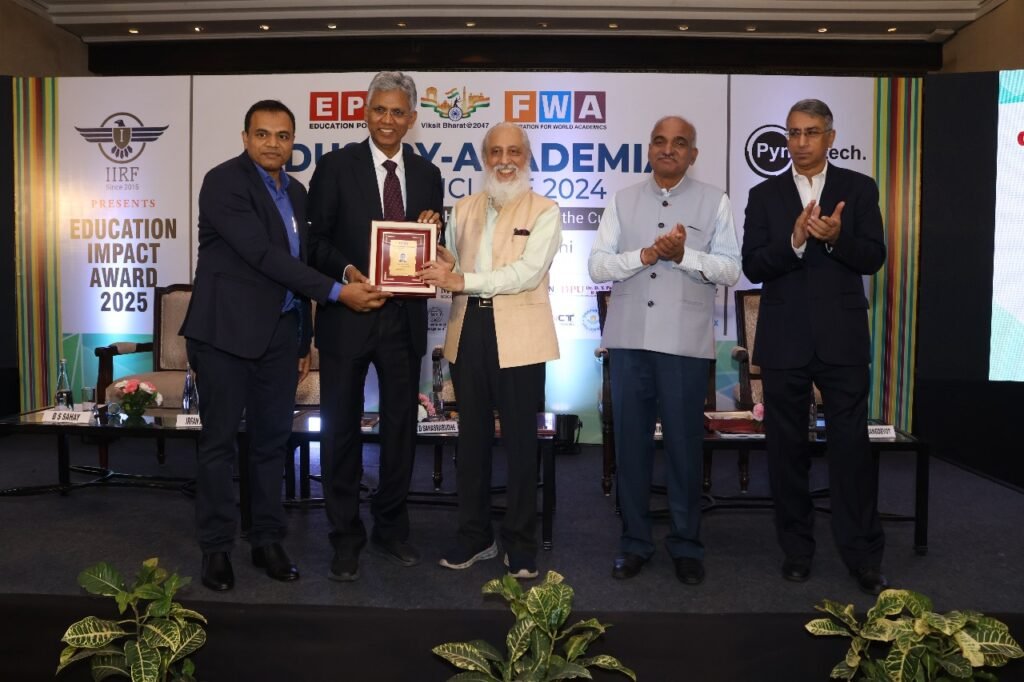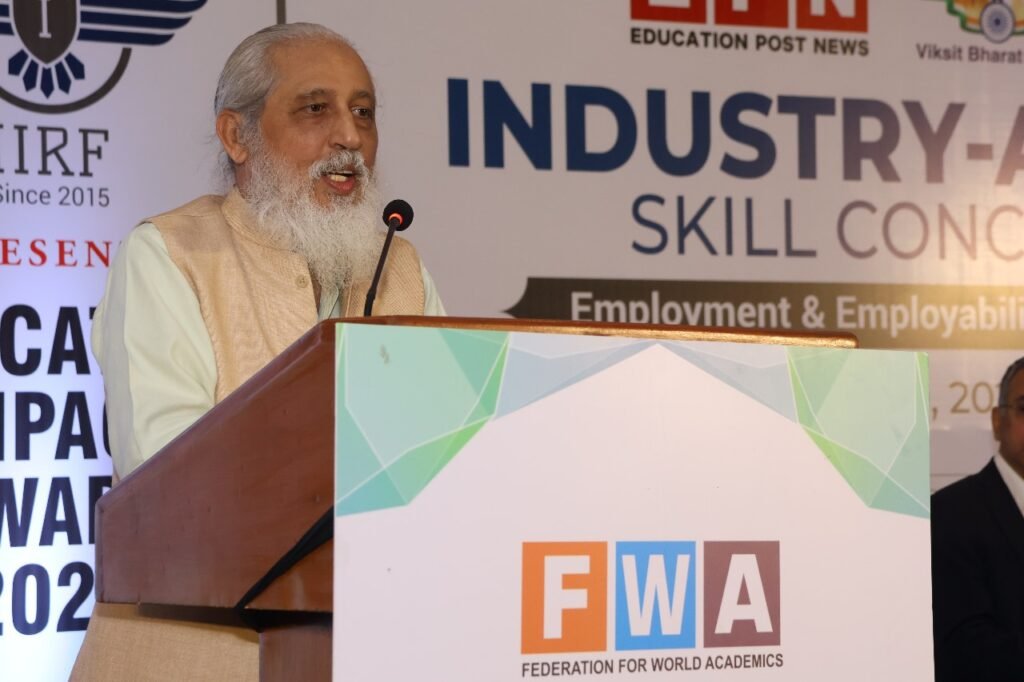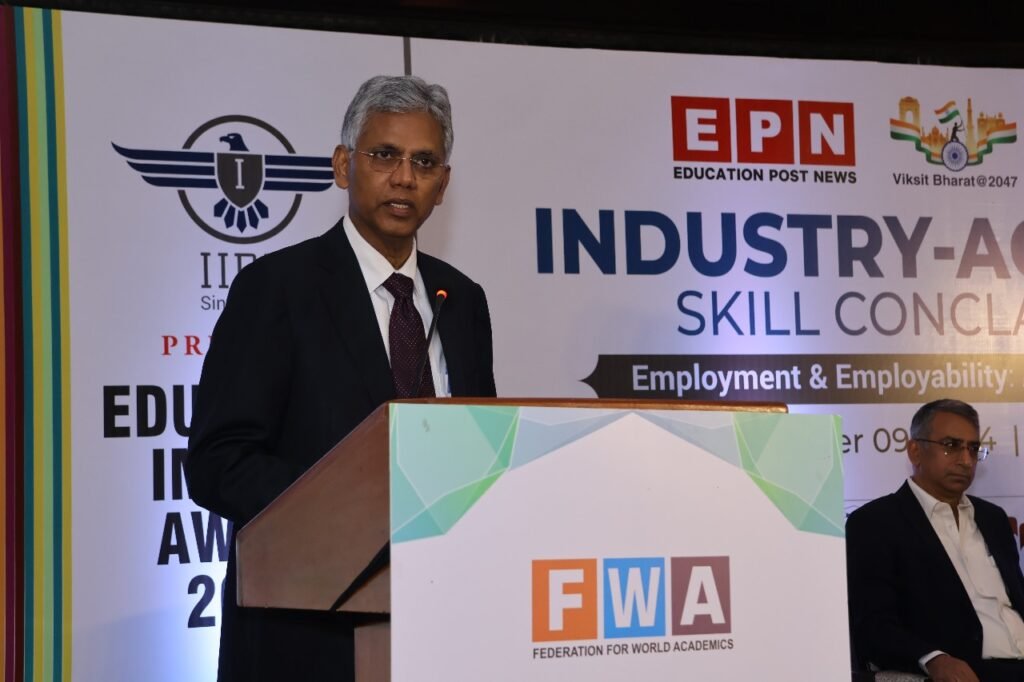
Delhi, New Delhi: The 7th Industry-Academia Annual Conclave 2024 was held at the Hyatt Regency in New Delhi with great success by the Federation for World Academics (FWA) and Education Post News (EPN). The subject for this year, “Employment & Employability: Ascending the Curve,” centred on tackling important issues and identifying creative ways to improve India’s employability. More than 200 prominent figures from the domains of education, business, and entrepreneurship attended the event. As a media partner, the DD National show AAP Ki Baat, which is produced by Abhilasha Productions, was present at the event.
Prof. Anil D. Sahasrabudhe, the distinguished Chief Guest and Chairman of the National Educational Technology Forum (NETF), NAAC, and NBA, officially opened the conclave. He gave a thought-provoking keynote address about capitalising on India’s current and future demographic dividend. Professor Sahasrabudhe highlighted how India’s vast youth population presents an unparalleled opportunity to accelerate growth and employability, urging stakeholders to align efforts towards creating a skilled workforce.

Several notable leaders were also present at the event, including Prof. Col. S.S. Saragdevot, Vice Chancellor of Janardan Rai Nagar Rajasthan Vidyapeeth, Udaipur; Dr. Irfan A. Rizvi, President of FWA; Dr. B.S. Sahay, Director of IIM Jammu; and Prof. Bhimaraya Metri, Director of IIM Nagpur. Together, they highlighted how crucial it is for industry and academics to work together to fulfil the changing demands of India’s workforce.
FWA President Dr. Irfan A. Rizvi highlighted the Conclave’s importance as a forum for information sharing. “With more than 200 participants from various backgrounds, this Conclave offers a special chance for networking and promotes cooperation between academic leaders, business professionals, and creative entrepreneurs. Additionally, it gives 50 companies a platform to showcase innovative concepts that will influence industry and employment in the future,” Dr. Rizvi said.
IIM Jammu Director Dr. B.S. Sahay discussed the significance of a strategic roadmap in achieving the Viksit Bharat 2047 objective. He discussed India’s heritage as a “Vishwaguru” and reiterated that studies and Innovation is one of the main forces behind the nation’s development. The young people were moved by his speech and were motivated to actively support India’s transition to a prosperous country.
IIM Nagpur’s director, Prof. Bhimaraya Metri, offered his thoughts on India’s changing skill market. He talked on how academia needs to change to create graduates who are prepared for the workforce and meet business demands, as well as the opportunities and difficulties brought about by the rapidly shifting demands of the industry.
The vice chancellor of Janardan Rai Nagar Rajasthan Vidyapeeth in Udaipur, Prof. Col. S.S. Sarangdevot, discussed the employment and employability trends in India today. He emphasised the need of workforce preparation while giving a thorough review of how regional and worldwide trends are changing the labour market. for upcoming difficulties.

The 20 panel talks, which covered a wide range of important topics, were a significant feature of the occasion. The panels discussed subjects including how technology is affecting employability, the changing skill sets required in the workforce of the twenty-first century, and how to take advantage of India’s demographic dividend. Professionals spoke about how industry and the educational system must work together to close the skills gap and provide India’s young the tools they need to succeed in a global economy that is becoming more and more competitive.

Special awards were also given out during the Conclave to honour people and institutions that have made outstanding achievements to the domains of industry and education. These honours honoured creativity, leadership, and commitment to creating a more promising and employable future for India’s labour force.
The 7th Industry-Academia Annual Conclave was a successful forum for promoting communication and cooperation between startups, industry, and academia. The occasion highlighted the pressing need for a workforce with the necessary skills to fulfil future demands, guaranteeing India’s place as a worldwide leader in innovation. as well as employability.
